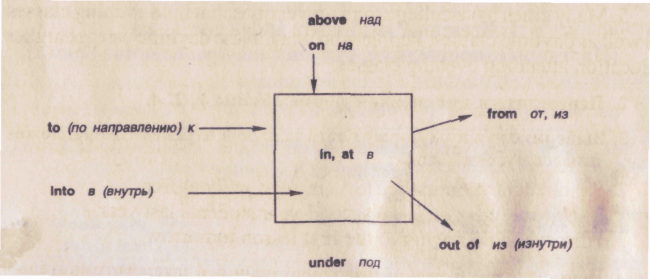
- •Контрольное задание № 1
- •1. Прочтите текст и ответьте на следующие вопросы:
- •Colleges and universities in the usa
- •2. Переведите в письменной форме абзацы 1, 2, 4.
- •2. Переведите в письменной форме абзацы 1, 2, 4.
- •2. Переведите в письменной форме абзацы 1, 2, 4.
- •2. Переведите в письменной форме абзацы 1, 2, 4.
Контрольное задание № 1
|
Лексические темы:
|
Грамматические темы: |
|
Education
|
|
Present, Past, Future Indefinite Tense (Настоящее, прошедшее, будущее неопределенное время)
|
Настоящее (Present) |
Прошедшее (Past) |
Будущее (Future) |
|
ask, know – I, we, you, they asks, knows – he, she, it |
asked, knew* - для всех лиц ед. и мн. числа |
will ask will know |
* Стандартные глаголы имеют в прошедшем времени суффикс -ed, нестандартные — особые формы, которые следует заучивать.
Спряжение глаголов to be и to have
Глагол to be
|
Настоящее (Present) |
Прошедшее (Past) |
Будущее (Future) |
|
am – I is – he, she, it are – we, you, they |
was – ед. число were – мн. число |
will be |
Глагол to have
|
Настоящее (Present) |
Прошедшее (Past) |
Будущее (Future) |
|
have – I, we, you, they has – he, she, it |
had |
will have |
Оборот there is/are
|
Настоящее (Present) |
Прошедшее (Past) |
Будущее (Future) |
|
there is – ед. число there are – мн.число |
there was – ед. число there were – мн.число |
there will be |
Основные предлоги места и времени

in: I. с названиями месяцев (inNovember)
2. с названиями времен года (inwinter)
3. с названиями времени дня (in the morning, in the evening, но at night)
4. c обозначениями года (in 1998) on: с названиями дней недели и дат (on Monday, on the first of January, on a day off) at: с обозначением точного времени (at 9 o'clock, at a quarter to three)
Контрольная работа № 1 Вариант 1
1. Прочтите текст и ответьте на следующие вопросы:
1. When do students get degrees of Bachelor of Science?
2. When do students get a master's degree?
Colleges and universities in the usa
1. Young people in the USA get higher education in colleges and universities. Students choose "major" subject and make many courses in this subject.
2. After four years of study students get the degrees of Bachelor of Science (B. Sc), Bachelor of Philosophy (B. Phil.) or Bachelor of Arts (B.A., if they study Greek or Latin). After a year or two of further study they get a master's degree. If they go on in their study and research, they will get a still higher degree of Doctor of Philosophy (Ph. D).
3. Higher education trains people to become teachers, engineers or to do other professional work.
4. College students often continue their study at universities. Not all the students get grants. The minimum period of study is two years (in this case they don't get the degree of Ph. D.), three or even four years.
5. Many cities have colleges and universities that hold evening classes as well as daytime classes. People who work in the daytime can get higher education attending evening classes.
